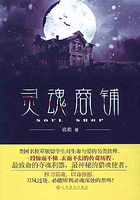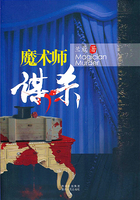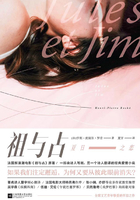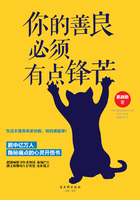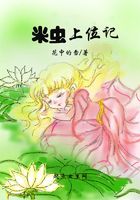WE QUESTION OF FORTUNE: FOUR-FIFTY A WEEK
Once across the river and into the wholesale district she glanced about her for some likely door at which to apply. As she contemplated the wide windows and imposing signs, she became conscious of being gazed upon and understood for what she was a wage seeker. She had never done this thing before, and lacked courage. To avoid a certain indefinable shame she felt at being caught spying about for a position, she quickened her steps and assumed an air of indifference supposedly common to one upon an errand. In this way she passed many manufacturing and wholesale houses without once glancing in. At last, after several blocks of walking, she felt that this would not do, and began to look about again though without relaxing her pace. A little way on she saw a great door which, for some reason, attracted her attention. It was ornamented by a small brass sign, and seemed to be the entrance to a vast hive of six or seven floors. " Perhaps," she though, "they may went some one," and crossed over to enter. When she came within a score of feet of the desired goal, she saw through the window a young man in a gray checked suit. That he had anything to do with the concern, she could not tell but because he happened to be looking in her direction her weakening heart misgave her and she hurried by, too overcome with shame to enter. Over the way stood a great six-story structure, labeled Storm and King, which she viewed with rising hope. It was a wholesale dry goods concern and employed women. She could see them moving about now and then upon the upper floors. This place she decided to enter, no matter what. She crossed over and walked directly toward the entrance. As she did so, two men came out and paused in the door. A telegraph messenger in blue dashed past her and up the few steps that led to the entrance and disappeared. Several pedestrians out of the hurrying throng which filled the sidewalks passed about her as she paused, hesitating. She looked helplessly around, and then, seeing herself observed, retreated. It was too difficult a task. She could not go past them.
So serve a defeat told upon her nerves. Her feet carried her mechanically forward, every foot of her progress being a satisfactory portion of a flight which she gladly made. Block after passed by. Upon street-lamps at the various corners she read names such as Madison, Monroe, La Salle, Clark, Dearborn, State, and still she went, her feet beginning to tire upon the broad stone flagging. She was pleased in part that the streets were bright and clean. The morning sun, shining down with steadily increasing warmth, made the shady side of the streets pleasantly cool. She looked at the blue sky overhead with more realization of its charm than had ever come to her before.
Her cowardice began to trouble her in a way. She turned back, resolving to hunt up Storm and King and enter. On the way she encountered a great wholesale shoe company, through the broad plate windows of which she saw an enclosed executive department, hidden by frosted glass. Without this enclosure, but just within the street entrance, sat a haired-haired gentleman at a small table, with a large open ledger before him. She walked by this institution several times hesitating, but finding herself unobserved, faltered past the screen door and stood humbly waiting.
"Well, young lady," observed the old gentleman, looking at her somewhat kindly, "what is it you wish?"
"I am, that is, do you I mean, do you need any help?" she stammered.
"Not just at present," he answered smiling. "Not just at present. Come in some time next week. Occasionally we need some one."
She received the answer in silence and backed awkwardly out. The pleasant nature of her reception rather astonished her. She had expected that it would be more difficult, that something cold and harsh would be said she knew not what. That she had not been put to shame and made to feel her unfortunate position, seemed remarkable. Somewhat encouraged, she ventured into another large structure. It was a clothing company, and more people were in evidence well dressed men of forty and more, surrounded by brass railings.
An office boy approached her.
"Who is it you wish to see?" he asked.
"I want to see the manager," she said.
He ran away and spoke to one of a group of three men who were conferring together. One of these came towards her.
"Well?" he said coldly. The greeting drove all courage from her at once.
"Do you need any help?" she stammered.
"No," he replied abruptly, and turned upon his heel.
She went foolishly out, the office boy deferentially swinging the door for her, and gladly sank into the obscuring crowd. It was a serve setback to her recently pleased mental state.
Now she walked quite aimlessly for a time, turning here and there, seeing one great company after another, but finding no courage to prosecute her single inquiry. High noon came, and with it hunger. She haunted out unassuming restaurant and entered, but was disturbed to find the prices were exorbitant for the size of her purse. A bowl of soup was all that she could afford, and with this quickly eaten, she went out again. It restored her strength somewhat and made her moderately bold to pursue the search.
In walking a few blocks to fix upon some probable place, she again encountered the firm of Storm and King, and this time managed to get in. Some gentlemen were conferring close at hand, but took no notice of her. She was left standing, gazing nervously upon the floor. When the limit of her distress had been nearly reached, she was beckoned to by a man at one of the many desks within the near-by railing.
"Who is it you wish to see?" he inquired.
"Why, any one, if you please," she answered. " I am looking for something to do."
"Oh, you want to see Mr. McManus," he returned. "Sit down," and he pointed to a chair against the neighboring wall. He went on leisurely writing, until after a time a short, stout gentlemen came in from the street.
"Mr. McManus," called the man at the desk, "this young women wants to see you"
The short gentlemen turned about towards Carrie, and she rose and came forward.
"What can I do for you, miss?" he inquired, surveying her curiously.
"I want to know if I can get a position," she inquired.
"As what?" he asked.
"Not as anything in particular," she faltered.
"Have you ever had any experience in the wholesale dry goods business?" he questioned.
"No, sir," she replied.
"Are you a stenographer or typewriter?"
"No, sir."
"Well, we haven't anything here," he said. "We employ only experienced help."
She began to step backward toward the door, when something about her plaintive face attracted him.
"Have you ever worked at anything before?" he inquired.
"No, sir," she said.
"Well, now, it's hardly possible that you would get anything to do in a wholesale house of this kind. Have you tried the department stores?"
She acknowledged that she had not.
"Well, if I were you," he said, looking at her rather genially, "I would try the department stores. They often need young women as clerks."
"Thank you," she said, her whole nature relieved by this spark of friendly interest.
"Thank you," she said, her whole nature relieved by this spark of friendly interest.
"Yes," he said, as she moved toward the door, "you try the department stores," and off he went.
At the time the department store was in its earliest form of successful operation, and there were not many The first three in the United States, established about 1884, were in Chicago. Carrie was familiar with the names of several through the advertisements in the "Daily News," and now proceeded to seek them. The words of Mr. McManus had somehow managed to restore her courage, which had fallen low, and she dared to hope that this new line would offer her something. Sometime she spent in wandering up and down, thinking to encounter the buildings by chance, so readily is the mind, bent upon prosecuting a hard but needful errand, eased by that self-deception which the semblance of search without the reality gives. At last she inquired of a police officer, and was directed to proceed "two blocks up," where she would find "The Fair."
The nature of these vast retail combinations, should they ever permanently disappear, will form an interesting chapter in the commercial history of our nation. Such a flowering out of a modest trade principle the world had never witnessed up to that time. They were along the line of the most effective retail organization, with hundreds of stores coordinated into one and laid out upon the most imposing and economic basis. They were handsome, bustling, successful affairs, with a host of clerks and a swarm of patrons. Carrie passed along the busy aisles, much affected by the remarkable displays of trinkets, dress goods, stationery, and jewelry. Each separate counter was a show place of dazzling interest and attraction.
She could not help feeling the chain of each trinket and valuable upon her personally, and yet she did not stop. There was nothing there which she could not have used-nothing which she did not long to own. The dainty slippers and stockings, the delicately frilled skirts and petticoats, the laces, ribbons, hair-combs, purses, all touched her with individual desire, and she felt keenly the fact that not any of these things were in the range of her purchase. She was a work-seeker, an outcast without employment, one whom the average employee could tell at a glance was poor and in need of a situation.
It must not be thought that any one could have mistaken her for a nervous, sensitive, high-strung nature, east unduly upon a cold, calculating, and un-poetic world. Such certainly she was not. But women are peculiarly sensitive to their adornment.
Not only did Carrie feel the drag of desire for all which was new and pleasing in apparel for women, but she noticed too, with a touch at the heart, the fine ladies who elbowed and ignored her, brushing past in utter disregard of her presence, themselves eagerly enlisted in the materials which the store contained. Carrie was not familiar with the appearance of her more fortunate sister of the city. Neither had she before known the nature and appearance of the shop girls with whom she now compared poorly. They were pretty in the main, some even handsome, with an air of independence and indifference which added, in the case of the more favored, a certain piquancy. Their clothes were neat, in many instances fine, and wherever she encountered the eye of one it was her individual shortcomings of dress and that shadow of manner which she though must hang about her and lighted in her heart. She realized in a dim way how meant for women, and she longed for dress and beauty with a whole heart.
On the second floor were the managerial offices, to which, after some inquiry, she was now directed. There she found other girls ahead of her, applicants like herself. but with more of that self- satisfied and independent air which experience of the city lends; girls who scrutinized her in a painful manner. After a wait of perhaps three quarters of an hour, she was called in turn.
"Now," said a sharp, quick-mannered Jew, who was sitting at a roll-top desk near the windows, "have you even worked in any other store?"
"No, sir," said Carrie.
"Oh, you haven't," he said, eyeing her keenly.
"No, sir," she replied.
"Well, we prefer young women just now with some experience. I guess we can't use you."
Carrie stood waiting a moment, hardly certain whether the interview had terminated.
"Don't wait!" he exclaimed. "Remember we are very busy here."
Carrie began to move quickly to the door.
"Hold on," he said, calling her back. "Give me your name and address. We want girls occasionally."
When she had gotten safely into the street, she could scarcely restrain the tears. It was not so much the particular rebuff which she had just experienced, but the whole abashing trend of the day. She was tried and nervous. She abandoned the though of appealing to the other department stores and now wandered on, feeling a certain safety and relief in mingling with the crowd.
In her indifferent wandering she turned into Jackson Street, nor far from the river, and was keeping her way along the south side of that imposing thoroughfare, when a piece of wrapping paper, written on with marking ink and tacked up on the door, attracted her attention. It read, "Girls wanted wrappers & stitchers. She hesitated a moment, then entered.
The firm of Speigelheim & Co, makers of boys' caps, occupied one floor of the building, fifty feet in width and some eighty feet in depth. It was a place rather dingily lighted, the darkest portions having incandescent lights, filled with machines and work benches. At the latter labored quite a company of girls and some men. The former were drabby-looking creatures, stained in face with oil and dust, clad in thin, shapeless, cotton dresses and shod with more or less worn shoes. Many of them had their sleeves rolled up, revealing bare arms, and in some cases, owing to the heat, their dresses were open at the neck. They were a fair type of nearly the lowest order of shop-girls-careless, slouchy, and more or less paid of from confinement. They were not timid, however; were rich in curiosity, and strong in daring and slang.
Carrie looked about her, very much disturbed and quite sure that she did not want to work here. Aside from making her uncomfortable by sidelong glances, no one paid her the least attention. She waited until the whole department was aware of her presence. Then some word was sent around, and a foreman, in an apron and shirt sleeves, the latter rolled up to his shoulders, approached.
"Do you want to see me?" he asked.
"Do you need any help?" said Carrie, already learning directness of address.
"Do you know how to stitch caps?" he returned.
"No, sir," she replied.
"Have you ever had any experience at this kind of work?" he inquired.
She answered that she had not.
"Well," said the foreman, scratching his ear meditatively, "we do need a stitcher. We like experienced help, though. We've hardly got time to break people in." He paused and looked away out of the window. "We might, though, put you at finishing," he concluded reflectively.
"How much do you pay a week?" ventured Carrie, emboldened by a certain softness in the man's manner and his simplicity of address.
"Three and a half," he answered.
"Oh," she was about to exclaim, but checked herself and allowed her thoughts to die without expression.
"We're not exactly in need of anybody," he went on vaguely, looking her over as one would a package. "You can come on Monday morning, though," he added, " and I'll put you to work."
"Thank you," said Carrie weakly.
"If you come, bring an apron," he added.
He walked away and left her standing by the elevator, never so much as inquiring her name.
While the appearance of the shop and the announcement of the price paid per week operated very much as a blow to Carrie's fancy, the fact that work of any kind was offered after so rude a round of experience was gratifying. She could not begin to believe that she would take the place, modest as her aspirations were. She had been used to better than that. Her mere experience and the free out-ofdoor life of the country caused her nature to revolt at such confinement. Dirt had never been her share. Her sister's flat was clean. This place was grimy and low, the girls were careless and hardened. They must be bad-minded and hearted, she imagined. Still, a place had been offered her. Surely Chicago was not so bad if she could find one place in one day. She might find another and better later.
Her subsequent experiences were not of a reassuring nature, however. From all the more pleasing or imposing places she was turned away abruptly with the most chilling formality. In other where she applied only the experienced were required. She met with painful rebuffs, the most trying of which had been in a manufacturing cloak house, where she had gone to the fourth floor to inquire.
"No, no," said foreman, a rough, heavily built individual, who looked after a miserably lighted workshop, "we don't want any one. Don't come here."
With the wane of the afternoon went her hopes, her courage, and her strength. She had been astonishingly persistent. So earnest an effort was well deserving of a better reward. On every hand, to her fatigued senses, the great business portion grew larger, harder, more stolid in its indifference. It seemed as if it was all closed to her, that the struggle was too fierce for her to hope to do anything at all. Men and women hurried by in long, shifting lines. She felt the flow of the tide of effort and interest felt her own helplessness without quite realizing the wisp on the tide that she was. She cast about vainly for some possible place to apply but found no door which she had the courage to enter. It would be the same thing all over. The old humiliation of her plea, rewarded by curt denial. Sick at heart and in body, she turned to the west, the direction of Minie's flat, which she had now fixed in mind, and begat that wearisome, baffled retreat makes. In passing through Fifth Avenue, south towards Van Buren Street, where she intended to take a car, she passed the door of a large wholesale shoe house, through the plate-grass window of which she could see a middle aged gentleman sitting at a small desk. One of those forlorn impulses which often grow out of a fixed sense of defeat, the last sprouting of a baffled and uprooted growth through the door and up to the gentleman, who looked at her weary face with partially awakened interest.
"What is it?" he said.
"Can you give me something to do?" said Carrie.
"Now, I really don't know," he said kindly. "What kind of work is it you want-you're not a typewriter, are you?"
"Oh, no," answered Carrie.
"Well, we only employ book-keepers and typewriters here. You might go around to the side and inquire upstairs. They did want some help upstairs a few days ago. Ask for Mr. Brown."
She hastened around to the side entrance and was taken up by the elevator to the fourth floor.
"Call Mr. Brown, Willie," said the elevator man to a boy near by.
Willie went off and presently returned with the information that Mr. Brown said she should sit down and that he would be around in a little while.
It was a portion of the stock room which gave no idea of the general character of the place, and Carrie could form no opinion of the nature of the work.
"So you want something to do," said Mr. Brown, after he inquired concerning the nature of her errand. " Have you ever been employed in a shoe factory before?"
"No, sir," said Carrie.
"What is your name?" he inquired, and being informed, "Well, I don't know as I have anything for you. Would you work for four and a half a week?"
Carrie was too worn by defeat not to feel that it was considerable. She had not expected that he would offer her less than six. She acquiesced, however, and he took her name and address.
"Well," he said, finally, "you report here at eight o'clock Monday morning. I think I can find something for you to do."
He left her revived by the possibilities, sure that she had found something at last. Instantly the blood crept warmly over her body. Her nervous tension relaxed. She walked out into the busy street and discovered a new atmosphere. Behold, the throng was moving with a lightsome step. She noticed that men and women were smiling. Scraps of conversation and notes of laughter floated to her. The air was light. People were already pouring out of the buildings, their labor ended for the day. She noticed that they were pleased, and thoughts of her sister's home and the meal that would be awaiting her quickened her steps. She hurried on, tired perhaps, but no longer weary of foot. What would not Minnie say! Ah, the long winter in Chicago-the lights, the crowd, the amusement! This was a great, pleasing metropolis after all. Her new firm was a goodly institution Its windows were of huge plate glass. She could probably do well there. Thoughts of Drouet returned-of the things he had told her. She now felt that life was better that it was livelier, sprightlier. She boarded a car in the best of spirits, feeling her blood still flowering pleasantly. She would live in Chicago, her mind kept saying to itself. She would have a better time than she had ever had before she would be happy.

